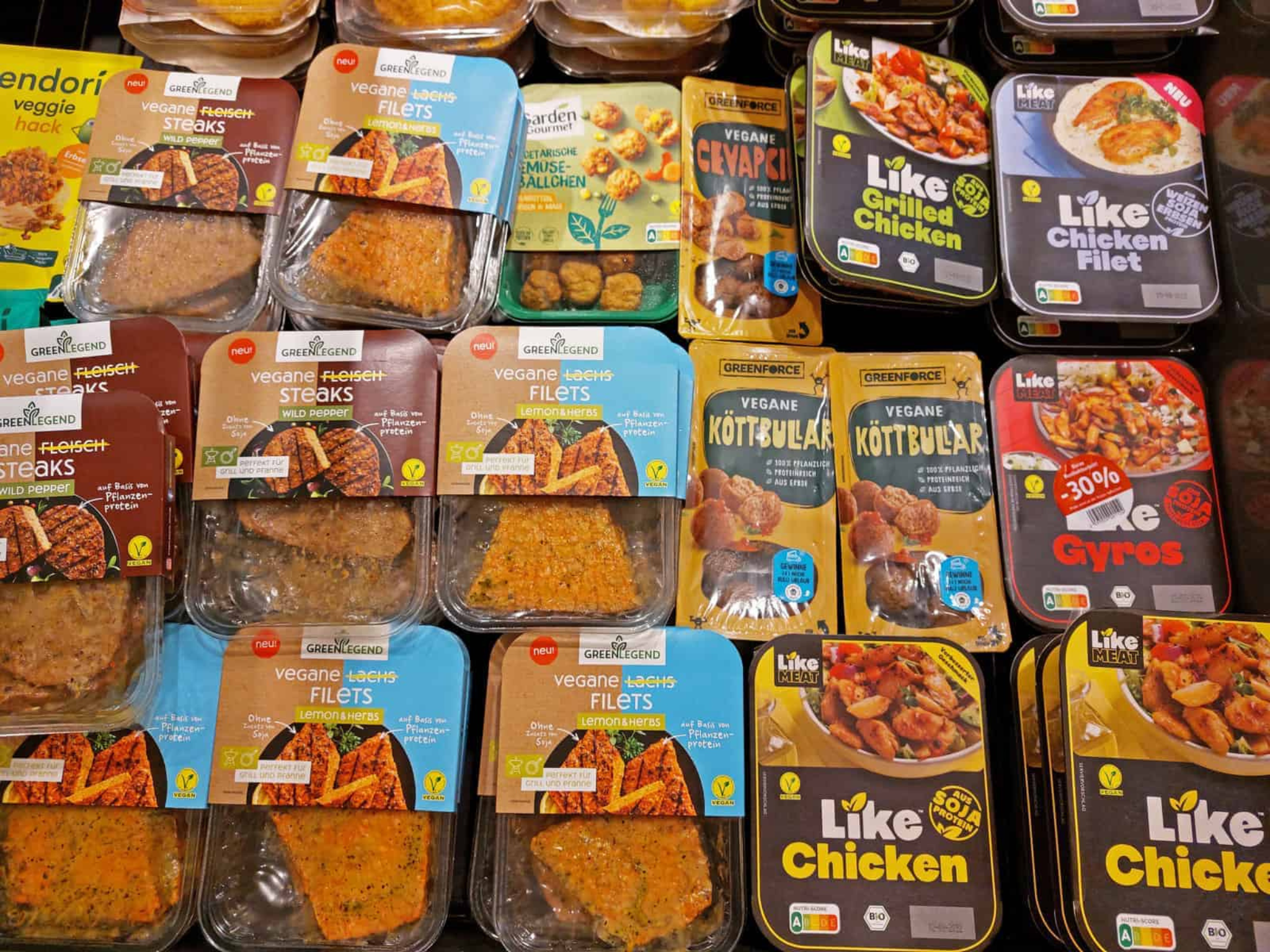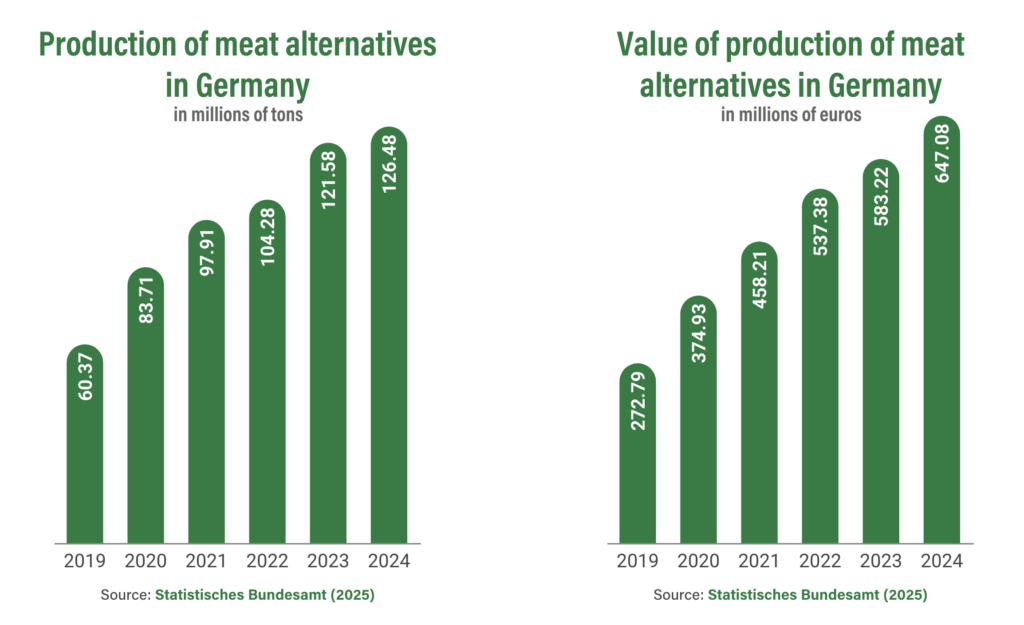
Meat and milk consumption has declined in Germany, while the production of plant-based proteins has doubled since 2019, spotlighting the flexitarian consumer base.
Germany isn’t Europe’s largest market for plant-based food for no reason.
Though many countries saw sales of vegan food contract in 2024, Germany recorded a 1.5% growth, reaching nearly €1.7B, according to Circana data released by the Good Food Institute (GFI) Europe.
Now, a data analysis from ProVeg International reveals the driving factors behind this category’s success in this market, outlining how the consumption of meat and milk has fallen to historic lows, just as production of plant-based proteins has skyrocketed.
The food awareness organisation cited government data showing that over half of Germans identify as either vegan, vegetarian, or flexitarian. And nearly two in five (39%) have now eaten plant-based meat and dairy alternatives several times, with 14% having tried them once.
Red meat and milk are driving the decline in animal protein intake

ProVeg’s research found that women in Germany are much more likely to be flexitarian, vegetarian and or vegan (66%) than men (37%). Similarly, meat reduction is most common among Gen Z (57%), followed by those aged 60 and over (52%).
At 52.8kg per capita, annual meat consumption reached an all-time low in 2022. This marginally rose to 53.3kg in 2024, but was still 13% lower than a decade prior. The intake of red meat, like pork and beef, has particularly driven this decline.
Moreover, Germans drank less milk in 2024 than ever before, consuming just 46.2kg per person, a 15.5% decline from 2014. The consumption rates of cheese and eggs, however, were at their highest since at least 2010.
“In recent years, meat consumption in Germany has declined by around 10kg per year, but this has been offset by an increase in cheese consumption,” Achim Spiller, chair of Germany’s Scientific Advisory Board on Agricultural Policy, Nutrition and Consumer Health (WBAE), said in July.

“As a result, total greenhouse gas emissions from food have hardly decreased. Alternative products may offer a way out of this ‘cheese paradox’, as they often have a significantly lower climate footprint,” he added.
Separate research by GFI Europe shows that half of adults in Germany want to change their diets by either reducing meat or eating more plant-based food. That being said, among the third of respondents who want to cut back on animal proteins, only 6% are influenced by the environmental impact, despite meat and dairy production taking up two-thirds of the country’s agricultural emissions and 60% of its farmland.
Instead, high costs (25%), health concerns (24%), and changing taste preferences (19%) are the primary drivers of Germans’ desire to reduce animal protein intake.
Plant-based meat production doubles in Germany
While meat and dairy consumption are on the decline, plant-based proteins are thriving in Germany. The amount of meat alternatives produced in the country has grown every year since 2019, and more than doubled by 2024, reaching 126 million tonnes.
The value of these products rose by an even greater margin, reaching €647M in 2024, a 137% increase from five years prior. Likewise, the number of companies manufacturing plant-based meat grew from 34 in 2019 to 68 in 2024.
Additionally, a third of German households (32%) bought vegan meat analogues at least once in 2024, rising to 37% for non-dairy milk.

That said, GFI Europe polling shows that Germans find meat and dairy much more palatable and wallet-friendly than plant-based alternatives, outlining the barriers vegan food producers need to overcome. Companies including Oatly and Rewe Group have already petitioned the government with a call to lower the VAT on plant-based milk from 19% to match dairy (which is taxed at 7%).
Speaking of which, the WBAE has urged the German government to increase public support for alternative proteins, recommending over 50 policy measures as part of a “3R strategy”. This aims to “reduce” the portion sizes of meat and dairy, “remix” them with plant-based ingredients to create blended proteins, or “replace” them entirely with alternative proteins.
“The reduction in the consumption of animal-sourced foods is largely driven by people who wish to cut back for various reasons – not by those fully switching to vegetarian or vegan diets,” it noted. “Therefore, a key lever for food policy is to promote gradual change through a flexible reduction and substitution strategy.”
The post Meat & Milk Reach Historic Consumption Lows in Flexitarian Germany appeared first on Green Queen.
This post was originally published on Green Queen.